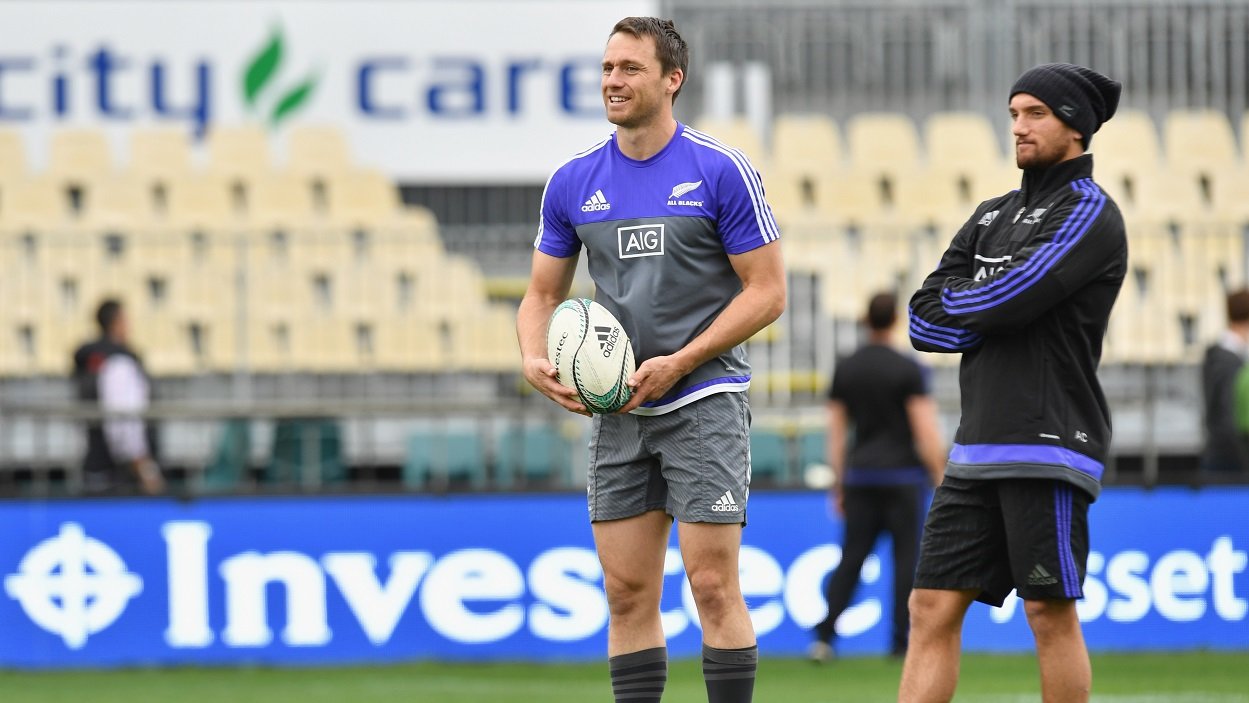Changing Top 14 rules mean fewer raids on southern rugby

There will be fewer Top 14 raiding parties in future – and they will want just the biggest names, writes James Harrington.
Ben Smith’s champagne-or-Speight’s decision to re-sign with the All Blacks until 2020 will have drawn quiet sighs of relief in the corridors of New Zealand rugby power, after they had already lost Aaron Cruden to the big-money temptation of France’s Top 14.
Smith had been linked with Simon Mannix’s ambitious Pau, where he would have teamed up with Conrad Smith and Colin Slade – while Irish Pro 12 outfit Munster were also said to be interested in his signature.
It is believed he is now the second highest-paid All Black on the books. But, money, he is reported as saying, was not as important as spending more time with his growing family. So, a sabbatical clause (or, the ‘option of an extended non-playing break from the game in order to manage his workload’, according to a verbose NZRU statement) was included in the deal.
Meanwhile, Cruden has turned his back on the All Blacks for a reported €800,000-a-season contract at Montpellier, though he, too, has said the cash was not the only factor in his decision to head north.
But Top 14 raiding parties are likely to become fewer and more choosy in seasons to come.
Not because of a lack of money – before the end of last season, French pay-per-view broadcaster Canal Plus had signed a €97million-a-year four-season deal from 2019 to 2023, to replace the current €74million-a-year contract – but due to an increasingly strict set of regulations.
Seven years ago, the Ligue Nationale de Rugby (LNR), alarmed at the number of overseas players flooding into the French game, decided to implement a quota system. But, this is no ordinary quota system. This is a French quota system, which means that it is entirely too complicated.
At the start of the 2010/11 season, these rules said, 14 players in a club’s total professional squad of 35 (40%) had to have spent at least three seasons in a French club’s youth academy before they had turned 21, or had been licensed to play in France for five seasons before the age of 23.
Players who meet this standard are known as JIFF – which stands for Joueurs Issus des Filières de Formation.
From the 2013/14 season, that quota tightened from 40% to 55%, and as of this season the LNR can impose a fine on any club that fields a matchday squad that contains fewer than 12 JIFF-qualified players.
Rich club owners, such as Montpellier’s Mohed Altrad, have the funds to pay these fines as they continue their voracious hunt for silverware, but the rules have had an effect. In 2011/12, French clubs recruited 61 overseas players. By the 2014/15 season, that figure had dropped to 34.
[rugbypass-ad-banner id=”1485479950″]
From next season, the rules become even more strict, and carry a points-based punishment so even Montpellier cannot sensibly ignore them. Top 14 and second-tier Pro D2 sides must name 14 JIFF players in their matchday 23 – and will lose up to 10 points at the end of the season if they fail to do so.
Last season, losing 10 points would have seen eventual champions Racing 92 miss out on the play-offs altogether. In the 2014/15 season, it was the difference between a place in the European Champions Cup and relegation to the ProD2.
While 10 points is at the upper end of the projected penalty scale, for teams that consistently fail to name more than 10 JIFF players in their squad, even a two-point penalty for being just one player short of the requirement, last season, would have seen finalists Toulon drop from second in the league – with an automatic bye to the play-off semi-finals – to fourth.
The LNR has also closed a loophole in the JIFF system in which clubs, such as Clermont and Brive, recruited young players to their academies, so that they were JIFF-qualified by the time they passed the age limit. Overseas players on ‘espoir’ (youth) contracts will still be regarded as non-JIFF for the purposes of the rules.
And from next season, clubs’ 35-strong squads will be limited to 16 non-JIFF players, and medical jokers signed on short-term contracts as cover for injured players, will be included in this maximum of 16 limit.
Not everyone is pleased with the changes. Toulon’s Mourad Boudjellal and Montpellier’s Altrad are both unimpressed, to say the least, but – with notable exceptions, such as Cruden – Top 14 clubs are currently focusing their search for new talent in France. And that has to be good for the national side.
Of course, it does mean that they will only be interested in marquee names – so expect the NZRU to have its work cut out.























































































